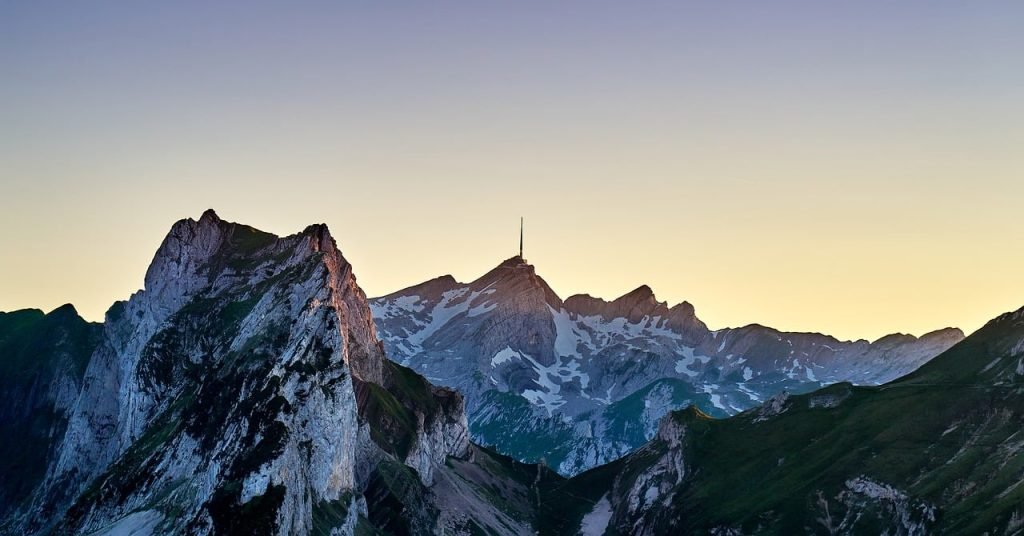What would you say if someone asked if hiking and backpacking were the same thing? You might be surprised to learn that there’s a significant difference between these two outdoor activities. While both involve being in nature and enjoying the great outdoors, the experiences they offer can differ quite a bit. Let’s break it down together so that you can better understand what sets hiking apart from backpacking.

This image is property of pixabay.com.
Understanding Hiking
Hiking is one of the most accessible outdoor activities, appealing to people of various skill levels. It typically involves walking over established paths or trails, often in parks or nature reserves. Hiking can be a leisurely stroll through a local woodland area or an intense trek up a mountain, depending on your preferences.
Types of Hiking
Not all hikes are created equal. Here are some of the different types of hiking you might encounter:
-
Day Hiking: This is the most common form of hiking where you head out for just a day. You start and finish your hike in the same day, which means you typically don’t need to carry a heavy backpack filled with overnight gear.
-
Urban Hiking: In urban settings, you can explore parks, greenways, and city trails, blending nature and city life. Urban hiking is perfect if you live in a city and need a quick escape into the outdoors.
-
Nature Hiking: Often found in national parks or reserve areas, this type focuses on enjoying the wilderness, wildlife, or scenic beauty. Nature hiking can vary in length and difficulty.
Hiking Gear Essentials
While hiking is more straightforward than backpacking, having the right gear enhances your experience. Here’s a quick list of essentials to keep in mind:
| Item | Purpose |
|---|---|
| Hiking Boots | Provide comfort and support for your feet. |
| Weather-Appropriate Clothing | Keeps you comfortable in changing weather. |
| Water Bottle | Staying hydrated is crucial. |
| Snacks | Quick energy source to fuel your hike. |
| Map or GPS Device | Helps in navigation, especially on trails. |
Investing in quality hiking gear makes your experience more enjoyable and safe, letting you focus on the beauty around you.
Benefits of Hiking
Hiking is not just about being active; it has many benefits for both your mental and physical health. Here are a few advantages you might enjoy:
-
Physical Fitness: Hiking is a great way to increase your cardiovascular fitness, strengthen your muscles, and improve flexibility. You’ll often work different muscle groups, especially when hiking uphill or navigating rough terrain.
-
Mental Well-being: Spending time in nature has been linked to reduced feelings of anxiety and depression. It’s an excellent time to clear your mind, enjoy the scenery, and recharge.
-
Social Interaction: Hiking can be a fantastic social activity. You can hike with friends or family, bond over the shared experience, and make lasting memories together.
What Is Backpacking?
Backpacking takes your outdoor adventures a step further. It combines hiking with camping and requires more planning and preparation. Unlike hiking, which can be limited to day trips, backpacking involves carrying everything you need to stay overnight in the wilderness—hence the name “backpacking.”
Backpacking Essentials
Selecting the right equipment is crucial for a successful backpacking trip. Here’s a list of what you might consider taking:
| Item | Purpose |
|---|---|
| Backpack | Designated to carry all your gear comfortably. |
| Tent | Provides shelter from the elements. |
| Sleeping Bag | Ensures a warm, restful sleep at night. |
| Cooking Equipment | Allows for preparing meals on the trail. |
| First Aid Kit | Important for handling minor injuries. |
Having the right backpacking gear can make a world of difference when you’re out in the wilderness for multiple days.
Types of Backpacking
Backpacking comes in different forms, catering to various interests and climates. Here are some you may encounter:
-
Traditional Backpacking: This is what most people picture when they think of backpacking. You carry your tent, food, and supplies, hiking from one campsite to another.
-
Thru-Hiking: If you’re adventurous, you might consider thru-hiking, tackling long-distance trails like the Appalachian Trail or Pacific Crest Trail. This requires deep planning, and completing can take weeks or months.
-
Lightweight Backpacking: If you prefer to minimize your load, lightweight backpacking focuses on carrying the least possible weight. This technique necessitates careful choices in gear and often involves special materials and equipment.
Benefits of Backpacking
Backpacking has its own unique set of benefits. Here’s what you might enjoy when you venture into the backcountry:
-
Self-Sufficiency: Carrying everything you need helps you build character and self-reliance. You learn how to adapt to challenges and troubles that may arise out on the trail.
-
Connection to Nature: Being immersed in nature overnight allows you to connect with your surroundings more intimately. The sounds, sights, and smells can provide an enriching experience.
-
Skill Development: Backpacking helps you develop skills like navigation, cooking, and camping techniques, making you more proficient in outdoor settings.

This image is property of pixabay.com.
Key Differences Between Hiking and Backpacking
While hiking and backpacking share similarities, they cater to different experiences and approaches to the outdoors. Here’s a deeper look at how they differ in significant aspects:
Duration of the Trip
-
Hiking is typically short-term, often lasting only a few hours to a day. You return to your vehicle or a base after your adventure, making it an easy option when you’re limited on time.
-
Backpacking involves multiple days and nights in the wilderness. You carry everything needed for your entire experience, making it more of a continuum in outdoor enjoyment.
Required Gear
| Feature | Hiking | Backpacking |
|---|---|---|
| Duration | Day trip, so less gear is needed. | Extended, requiring more comprehensive gear. |
| Cooking Options | Energy bars and snacks typically suffice. | Portable stove or cooking system needed. |
| Living Arrangements | Generally returns home or to a hotel. | Requires a tent or sleeping setup for the nights. |
The gear you pack varies based on your trip’s duration and needs. If you find the thought of lugging around a heavy pack daunting, hiking might be your best option.
Planning and Preparation
-
Hiking can often be spontaneous, needing less planning. If you feel the urge to get outside, you can decide to hike a familiar trail without much preamble.
-
Backpacking requires meticulous planning. You’ll need to map out your route, plan for water sources, and ensure that you pack enough food and supplies for your stay.
Skill Level
| Feature | Hiking | Backpacking |
|---|---|---|
| Basic Skills | A good sense of direction and stamina may suffice. | Requires navigation, survival, and camping skills. |
| Experience Needed | Convenient for all skill levels. | Best for those who are comfortable with the outdoors. |
Hiking is accessible to more individuals, making it a great entry point for getting into outdoor activities. Backpacking, on the other hand, often appeals to seasoned adventurers who have a desire to develop their skills further.
Environmental Interaction
-
Hiking often exposes you to milder environments and shorter trails. You may hike alongside others and enjoy clearly marked paths, making it feel like a shared experience with nature.
-
Backpacking ventures deeper into the wild, and it’s common to find yourself away from crowds. This immersion offers a unique element of solitude and exploration, crafting a different relationship with nature.
Decision-Making Process
In hiking, spontaneous decisions are typical. For instance, if you stumble upon an unexpected trail or viewpoint, you might choose to explore it for a few hours.
For backpacking, you’ll have a more structured decision-making process as your choices affect your entire trip. You’ll weigh the options of where to rest for the night or how far you’d like to hike that day based on energy levels, supplies, and route conditions.

This image is property of pixabay.com.
Conclusion: Which Is Right for You?
Deciding between hiking and backpacking isn’t solely about one being “better” than the other; it greatly depends on your personal preferences, fitness levels, and how you wish to engage with nature. Whether you’re looking for a serene day hike to drink in fresh air and lush surroundings or aiming for an extended backpacking excursion to challenge your endurance, both activities hold their unique charm.
Take some time to reflect on your interests and motivations. If you enjoy outdoor experiences but want the freedom to explore without the overnight weight, hiking is likely a fantastic choice. Alternatively, if you envision yourself spending several days immersed in the wild, backpacking might nourish your adventurous spirit.
Whichever path you choose, remember that nature is waiting just outside your door, ready to offer a new experience for you to enjoy. Happy trails!




